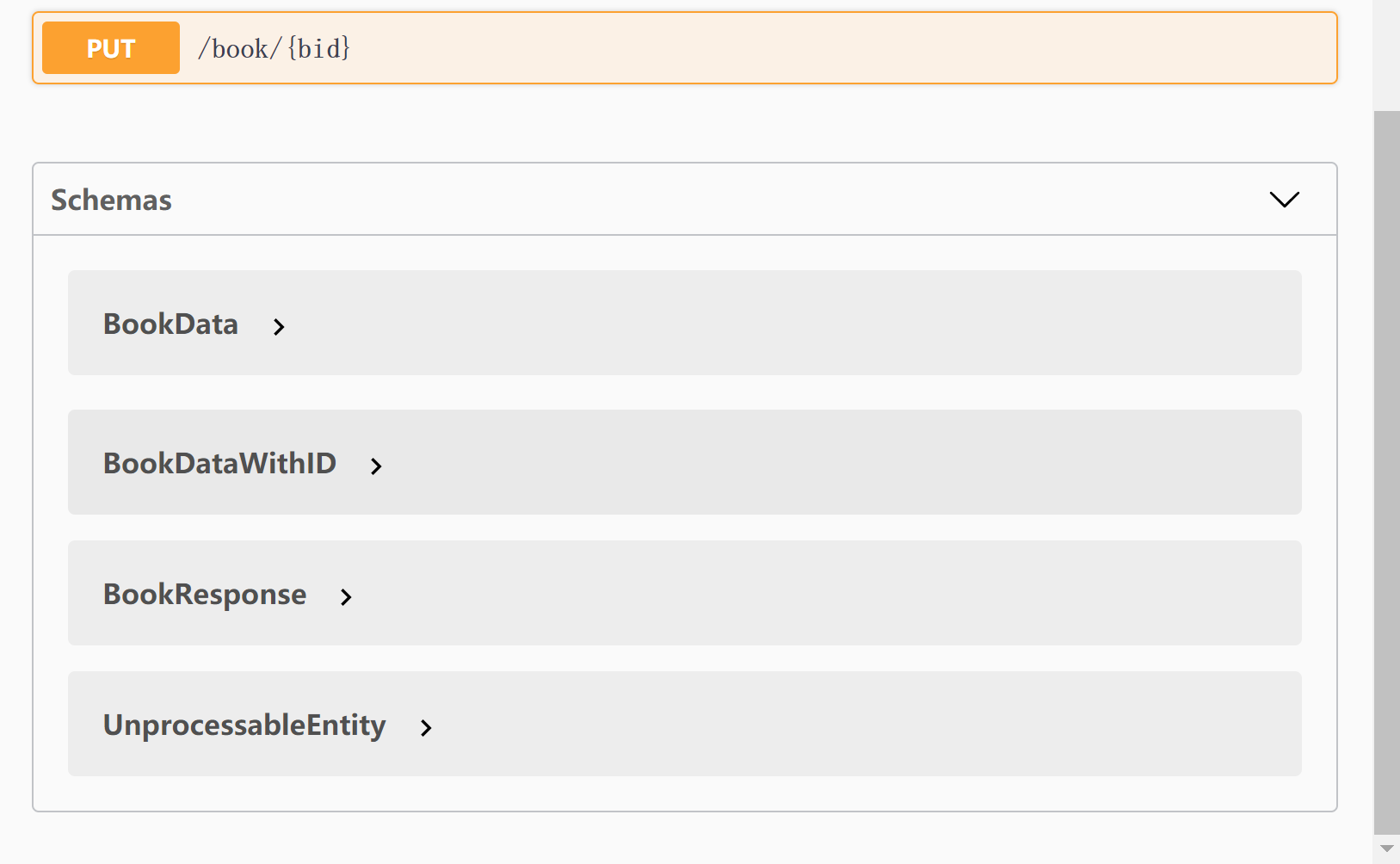1
2
3
4
5
6
7
8
9
10
11
12
13
14
15
16
17
18
19
20
21
22
23
24
25
26
27
28
29
30
31
32
33
34
35
36
37
38
39
40
41
42
43
44
45
46
47
48
49
50
51
52
53
54
55
56
57
58
59
60
61
62
63
|
## responses
If you want to generate **Schemas**, pass the **`responses`**.
```python hl_lines="13"
class BookBodyWithID(BaseModel):
bid: int = Field(..., description='book id')
age: Optional[int] = Field(None, ge=2, le=4, description='Age')
author: str = Field(None, min_length=2, max_length=4, description='Author')
class BookResponse(BaseModel):
code: int = Field(0, description="status code")
message: str = Field("ok", description="exception information")
data: BookBodyWithID
@app.get('/book/<int:bid>',
tags=[book_tag],
responses={
200: BookResponse,
# Version 2.4.0 starts supporting response for dictionary types
201: {"content": {"text/csv": {"schema": {"type": "string"}}}}
})
def get_book(path: BookPath, query: BookBody):
"""get a book
get book by id, age or author
"""
return {"code": 0, "message": "ok", "data": {}}
```
Now you can use `string`, `int`, and `HTTPStatus` as response's key.
```python hl_lines="5 7"
from http import HTTPStatus
class BookResponse(BaseModel):
message: str = Field(..., description="The message")
@api.get("/hello/<string:name>",
responses={
HTTPStatus.OK: BookResponse,
"201": {"content": {"text/csv": {"schema": {"type": "string"}}}},
204: None
})
def hello(path: HelloPath):
message = {"message": f"""Hello {path.name}!"""}
response = make_response(json.dumps(message), HTTPStatus.OK)
response.mimetype = "application/json"
return response
```

## More information about OpenAPI responses
- [OpenAPI Responses Object](https://spec.openapis.org/oas/v3.1.0#responses-object), it includes the Response Object.
- [OpenAPI Response Object](https://spec.openapis.org/oas/v3.1.0#response-object).
|